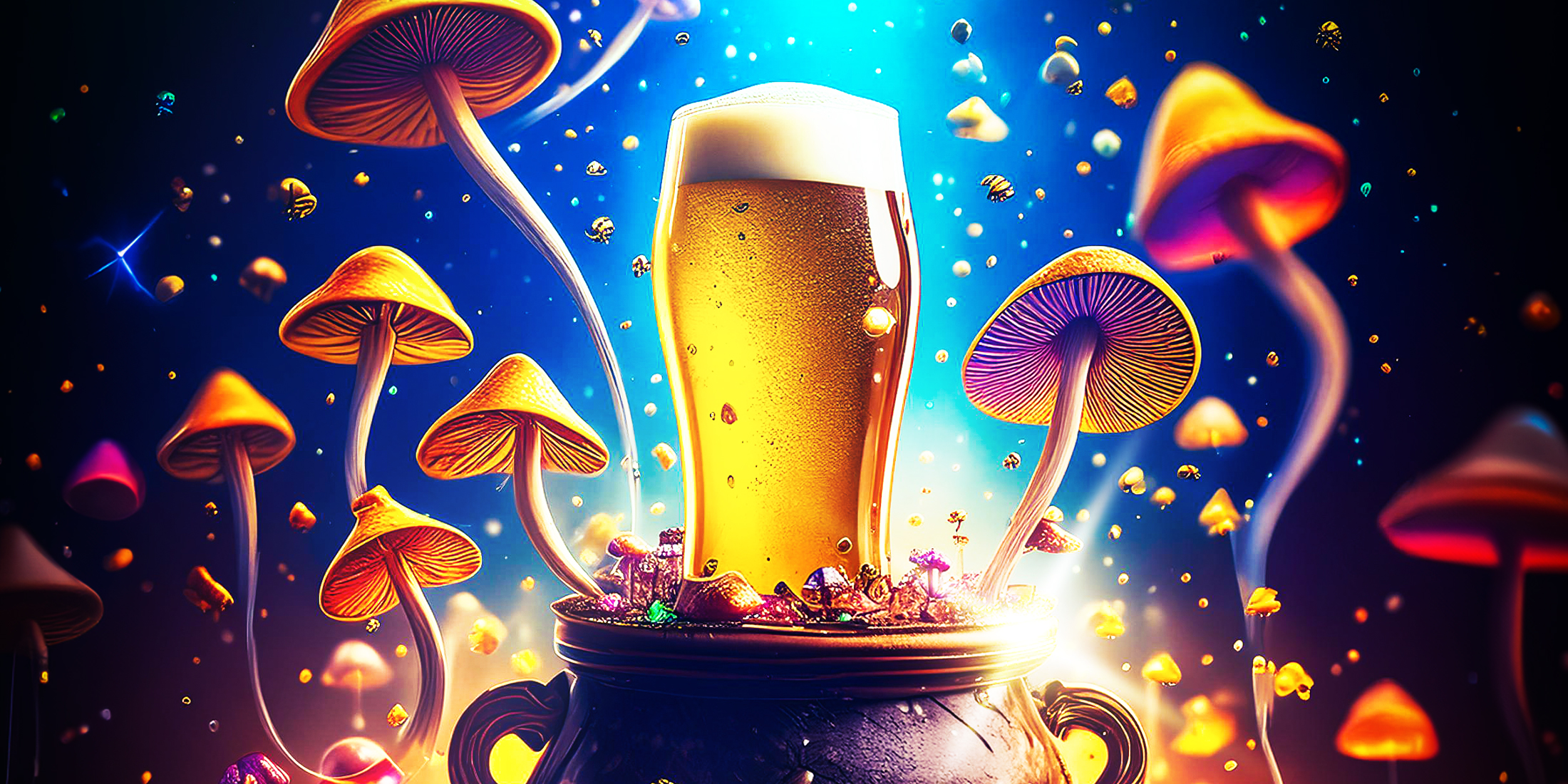Beer has been a staple of human civilization since its very first brew. It’s an ancient beverage because, in its crudest form, it’s simple enough to make accidentally. That’s probably how it happened over 6,000 years ago — some lucky Sumerian left some grain outside in a clay pot, forgot about it, it rained, and when they found it weeks later, they had beer. They tasted it, didn’t die, and got the first beer buzz.
The recipe evolved from there. More ingredients were added, until eventually, in many parts of Europe, psilocybin mushrooms found their way into the brew. Yes, once upon a time, beer was a magic beverage, imbued with psychedelic properties. Mushrooms remained a common ingredient in beer for many centuries. That was until the Holy Roman Empire banned them and all other psychedelic substances from being included in beer.
Why am I telling you any of this in Rooster’s esteemed and acclaimed conspiracy column? What has this got to do with conniving, plotting, backchannel collusion, and machinatory insidiousness?
Well sit back and crack a cold one, dear reader. And prepare yourself for the strange and unfortunate saga behind Germany’s celebrated, though, now defunct, Purity Law of 1514, AKA Reinheitsgebot — or as I’ve dubbed it, the Catholic Magic Beer Ban.
Because it isn’t just coincidence that those mind-altering, spiritual experience-inducing, trippy fungi were banned from beer by the church; it was just another sneaky attempt to control people’s spirituality and consciousnesses. The motivations behind Reinheitsgebot aren’t dissimilar to our own government’s prohibition of psychedelics.
In fact, they’re exactly the same.
WTF is a Reinheitsgebot?
Germany’s Beer Purity Act was billed as a way to regulate beer quality and consistency, to prevent price competition, and, of course, to make beer safer to drink. Until this law, people were commonly adding mushrooms, and other psychoactive pagan plants like gruit, henbane, belladonna, and wormwood. This new law made it illegal to use any ingredients except barley, hops, and water.
Many people call Reinheitsgebot the first food safety law in history.
It was a policy pushed by William IV — the Duke of Bavaria — a not-so-fondly remembered tool of the religious establishment. He was BIG on suppressing free thought. The protestant Reformation was occurring at this time, which was a massive revolution in freedom of religion that greatly threatened the power of the church. Ol’ Will of Bavaria became famous for banning any protestant teachings or practices in his fiefdom.
So, was Reinheitsgebot really about keeping people safe? Or was this yet another attempt on behalf of William IV to suppress free thought and freedom of religion at the Holy Roman Empire’s behest?
Old Prohibition, Modern Motivations
Call it a coincidence, but the justification for our government’s “Controlled Substances Act” is very similar to that of Reinheitsgebot. In order to prohibit substances like cannabis, psilocybin, mescaline, DMT, PCP, LSD, and more, our government paints them as dangerous to society, and unsafe for consumption.
“This is for your own good,” the authorities always assure us. “It’s for public safety.”
Maybe that’s true on some level. But the powers that be regularly demonstrate that they aren’t that concerned about our safety. They don’t care all that much how many people, or who owns assault rifles. Base jumping, bull riding, and motorcycle racing are all legal. Hell, it’s perfectly within your right to eat poisonous plants and send yourself to the hospital. But psychedelics that have been safely used for thousands of years? The people can’t handle those, apparently.
Or, perhaps more accurately, the power of authority can’t handle us having full access to them.
What happened to Reinheitsgebot?
In 1987 the German Purity Law was abolished. But the damage was already done. Psychedelic mushrooms and other such ingredients would never again find their way into beer. Even modern brewers won’t venture into that realm. The lasting effect of the German Purity Law will likely never fade away.
That is, unless some devil-may-care, authority-spiting, rule-breaking brewer takes matters into their own hands. In a place like Colorado, it wouldn’t be illegal to revive the lost tradition of magic beer. It would just have to be done underground — lest the Feds, like the Church, sweep in to try and stop you.



Leave a Reply
You must be logged in to post a comment.